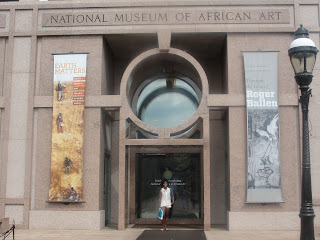Left to Right: Ken Riley, Rattler Quarterback; Eddie Jackson, Sports Historian; Dr. Beverly
Barber, Former Health Chair , Physical Education and Recreation Department; Bobby Lang, Former Rattler Track Coach
Barber, Former Health Chair , Physical Education and Recreation Department; Bobby Lang, Former Rattler Track Coach
In honor of the 50th anniversary of the March on Washington, Florida A&M University held a forum on Samuel G. Freedman’s book "Breaking the Lines." On August 27th, panelists and moderator discussed the influence of black college football in the civil rights movement.
Freedman is a journalist, author and a Columbia University professor who has written six nonfiction books and he runs his own writing seminar every spring. “Breaking the Lines” is Freeman’s first book on sports.
This book focuses on former FAMU football coach, Jake Gaither and Gambling University’s former football coach Eddie Robinson during the 1967 Orange Blossom Classic. It captures unlikely heroes of the civil rights movement through the eyes of football.
“If you can make a social change through football in the south you can change the world,”said Freedman. “It was a great honor and sacred trust...these athletes and coaches of HBCUs made great contributions to the movement.”
The panelist were Eddie Jackson, sports historian; Ken Riley, rattler quarterback; Bobby Lang, former Rattler track coach, and Dr. Beverly Barber, former chair health, physical education and recreation department.
Eddie Jackson was a 26-year-old journalist during the 1960s and he remembers when the Tallahassee Democrat didn’t cover FAMUs away games. "The press said 'Jake is a good coach but he’s a good black coach'," said Jackson. He said FAMU vs. Gambling University was “the most important game in black college football.”
On November 29, 1969, the first football game between a historically black college and a predominately white university was in Tampa. There were 45,000 to 50,000 people in attendance. “It was a lot for us as a people to have won that game,” said Dr. Barber. She said there were no riots at the University of Tampa there were only black fists in the air.
Dr. Barber was the first female choreographer for the Marching 100 and she was also the cheerleading advisor. In 1964 the band had their first piece of choreography. She said when FAMU would go to Miami for an away game Haines City was the only rest stop allowed for African-Americans.
“There’s a lot of history among our panelists. I had no idea about the extend of their contributions they made through history,”said Freedman.
Michael Smith, interim athletic director commended the panelists for overcoming their struggles and being fearless. “They realized there were opportunities for us as they broke the lines then we can connect the dots for greater opportunities.” He said the coaches were visionaries and they were not only looking at what was in front of them but what was ahead of them.
Need More
Follow Me On Twitter: 91WriterzStatus
YouTube: 91WriterzStatus
Comment, Rate, Follow and Reply!




























